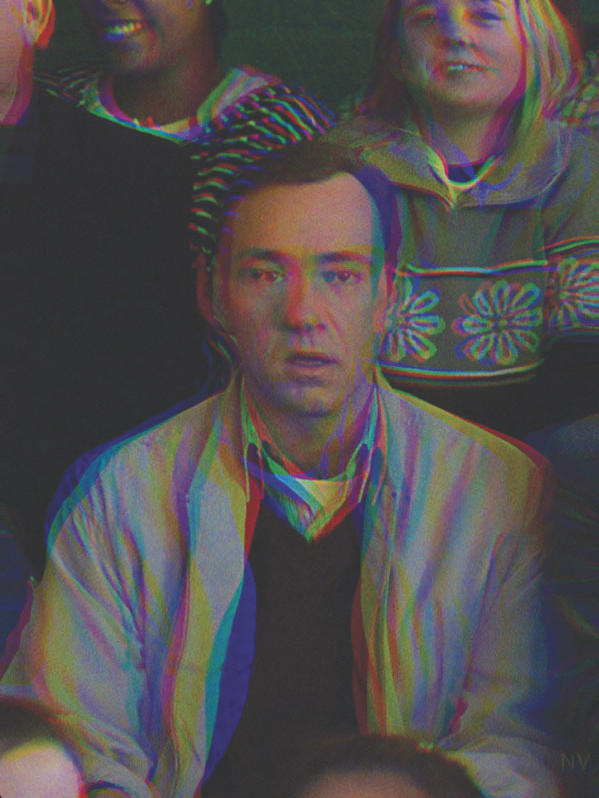Separating the art from the artist
What do you do when something you once loved becomes irreversibly tainted?
Kevin Spacey starred as Lester Burnham in the 1999 film, American Beauty, directed by Sam Mendes. In late 2018, Spacey was charged with sexually assaulting a young man, one of the many accusations Spacey is facing.
February 21, 2019
A couple of weeks ago I began to write this article. I felt it was an important article to be written. The question, or subject, of this piece is a crucial one to consider; so, as one does, I attempted to derive a clear and passionate answer. Something revolutionary, maybe. An answer makes sense and fills in the blanks left for so many people. The truth is, however, I don’t have one. And really, to be even more honest, I’m not entirely sure an answer sufficient enough exists.
Anyone who has checked their twitter account or news subscription in the last couple of years knows that we live among “cancel” culture. This societal agreement to “cancel” celebrities or everyday people after one discovers their acts or expression of racism, homophobia, sexism, violence, sexual assault, crime, etc. has increased exponentially in a relatively short period of time, thanks to monumental movements like #MeToo. However, while this is a turning point for silenced victims receiving justice and everything great that it brings for individuals’ well-being, often times the followers of the accused celebrities are left feeling disgusted, and well, confused.
That’s not to say we, the fans, are the victims, even despite the awful pit we feel in our stomach—the victims are the people who suffered because of the celebrities’ actions. For those who witness the ugly downfall of a person (with more money than they’ll ever have), the question of whether or not they can truly separate the art from the artist tends to come up. And this, everyone, is the question I hold no answer to.
All the ways I’ve attempted to answer it have left me feeling unsatisfied in one way or another. To say “yes, you can separate the art from the artist” is to say that you don’t care about who’s making the art, as long as it’s entertaining. To say “no, you can’t separate the art from the artist” is to give up the once innocent art you love. Neither option seems fair, and then I feel selfish because I know what the right answer should be—don’t support or engage in art made by bad people.
This feeling of selfishness and guilt that I experience when I want to love art that is now tarnished is not felt by me alone. I know I was not the only Kevin Spacey fan in the world, so when news came out that he was accused of truly disgusting crimes, some of those who once loved many of his movies felt the guilt and confusion too. Because of the importance of the movement and widespread agreement to cancel Spacey in every endeavor, I felt selfish for not wanting to give up American Beauty as my all-time favorite movie. That movie single-handedly altered the ways in which I viewed the world; it showed me that despite all the terribly negative and dull aspects of life, the beauty remains present—you just have to search for it. Now, ironically enough, I’m questioning if I can still manage to find that beauty in the art that happens to star a recently-accused sex offender.
So I feel selfish, but then I feel mad. Angry, actually. Angry that celebrities possess the talent to create such beautiful work, then go to ruin it by abusing that talent in some of the worst ways imaginable. Angry to a point where it naturally feels right to hate it all and say screw the artist. Although I—and others—might be angry with the person responsible for ruining the art and their possible victims, the impact the art (and possibly the artist) had on us remains. It’s not an easy task to simply erase the art from one’s mind, because more times than not, if it’s in the mind at all it’s because of connection, experience, or admiration, making it all the more difficult to forget.
While I may be at sea of whether we can, I do know that we should. We should shine more light on the good people, the ones who make the world a better place. We should condemn those who choose to abuse their power. We should encourage victims to speak out. We should improve.




